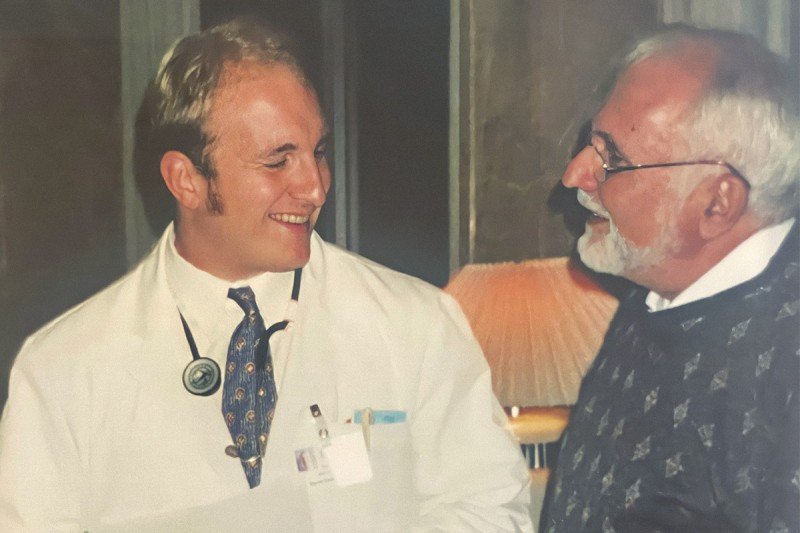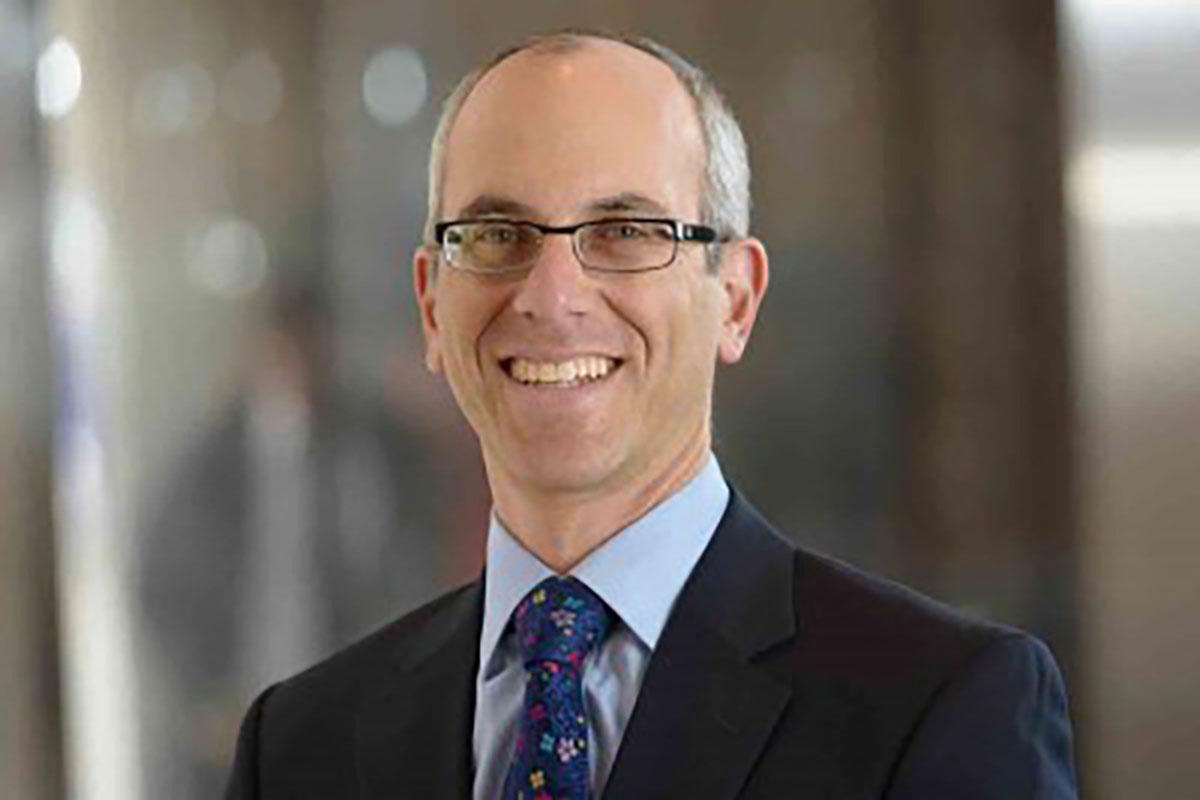
Perhaps the best known of all the cancer predisposition genes are inherited mutations in the genes BRCA1 and BRCA2. They were originally associated with an increased risk of breast and ovarian cancers. Later studies revealed they also raised the risk of prostate and pancreatic cancers, and in some cases, melanoma.
MSK has a program called RISE (Risk Assessment, Imaging, Surveillance, and Education) to regularly screen those at higher risk of breast cancer, including those with BRCA mutations. But for men with a BRCA diagnosis, the best steps to prevent cancer have been less clear until now.
MSK internist Robert Sidlow discovered this problem firsthand when a close family member and his best friend both learned they had inherited BRCA mutations and came to him for advice.
“I discovered there were no systematic programs out there to help men who have received this diagnosis, and there is a tremendous need for care coordination in this changing area,” he explains. “I said to myself, ‘I’ve got two people who are very close to me who are affected by this. Maybe I should do something about it.’ ”
Providing Cancer Screenings for Men With BRCA1 and BRCA2
After speaking with colleagues in the RISE program and in MSK’s Clinical Genetics Service (CGS), Dr. Sidlow decided to establish a program that would provide a “one-stop shop” for highly personalized cancer screening and surveillance for men with inherited BRCA mutations.

After completing a certification course in genomic cancer risk assessment, he worked with Alicia Latham, head of MSK’s Comprehensive Assessment, Treatment, and Prevention of Cancers with Hereditary Predispositions (CATCH) program, to establish standards of care for this unique MSK patient population. He also consulted with Kenneth Offit, Chief of MSK’s CGS, whose lab discovered the most common BRCA2 mutations in 1996.
“There aren’t many high-quality studies out there to inform what should and shouldn’t be done to prevent different cancers in men with BRCA,” Dr. Sidlow says. “I try to help each patient weigh the risks and benefits of each potential screening modality, and we share these decisions together.”
Who Is at Risk of Inheriting BRCA Mutations?
The BRCA mutations that are linked to cancer run in families. They are more common in people of Ashkenazi (Eastern European) Jewish descent but can occur in people of any ethnic background. Both sons and daughters who have a parent with one of these mutations have a 50% chance of inheriting the mutation themselves.
BRCA mutations are passed on in an autosomal dominant manner, which means only one copy of the mutation is required to confer the risk. Having a BRCA mutation does not guarantee that a person will get cancer, but their chances are greatly increased.
Uncovering the Hidden Cancer Risk in the Della Rocca Family
In March 2020, David Della Rocca’s father was diagnosed with pancreatic cancer. Dr. Della Rocca is an ophthalmologist and eye surgeon at MSK.
His father’s treatment at MSK included genetic testing, which revealed he had inherited a BRCA mutation. Dr. Della Rocca and his two sisters knew they needed to get tested as well. This revelation shed new light on another piece of family history. Dr. Della Rocca’s paternal grandmother had died young from an abdominal condition. The family never knew the cause, but Dr. Della Rocca now believes it was ovarian cancer.
Thankfully, when his sisters were tested, both their results were negative. After his father died, Dr. Della Rocca decided it was finally time for him to get tested. When he met with MSK’s genetics team in January 2022, he learned that he had inherited a BRCA1 mutation and was referred to Dr. Sidlow’s screening program.
Genetic counseling and cancer risk assessment is an important part of cancer care at MSK. Through this process, genetic counselors and doctors help patients understand their risk for inherited cancers. Based on results from genetic testing and family cancer history, the expert team provides patients and their family members with recommendations for screening and ways to reduce their risk.
Learn how to get tested for BRCA1 and BRCA2 genes by making an appointment with MSK’s Clinical Genetics Service.
Cancer Screening Tests That MSK Recommends for Men With BRCA Gene Mutations
At their first meeting, Dr. Sidlow explained the three BRCA1-linked cancers that can affect males: prostate cancer, pancreatic cancer, and male breast cancer. (BRCA2 mutations also slightly increase the risk of melanoma.) Dr. Della Rocca underwent several screening tests for males with BRCA mutations:
- A prostate-specific antigen (PSA) test and physical exam for prostate cancer.
- A mammogram and physical exam for breast cancer.
- An MRI of his pancreas and the surrounding organs and ducts to look for signs of pancreatic cancer.
- A referral to MSK’s high-risk pancreas cancer screening registry for periodic endoscopic ultrasounds.
“There isn’t an established way to screen for pancreatic cancer,” Dr. Della Rocca notes, “but these tests allowed us to establish a baseline.”
None of Dr. Della Rocca’s tests found any signs of concern. He will continue to see Dr. Sidlow once a year for prostate cancer screening and will have screenings for breast and pancreatic cancer every five years.
Dr. Della Rocca, who was treated for a likely unrelated sarcoma about a decade ago, says that learning he is a BRCA1 carrier has been difficult in many ways. “I’ve been through cancer treatment before, so I’m not so worried about myself,” he explains. “What’s been hardest for me is knowing that I could have passed this mutation on to my three children.”
He adds: “Of course it would have been better to find out I was negative, but the idea that you can have a plan going forward and be proactive about your health is very reassuring.”
Men with BRCA mutations who are interested in enrolling in Dr. Sidlow’s clinic can call 646-608-8460. People with a personal or family history of cancer who are interested in genetic screening and testing can contact MSK’s Clinical Genetics Service at 646-888-4050. MSK patients can also contact CGS through the MyMSK portal at Clinical Genetics.












